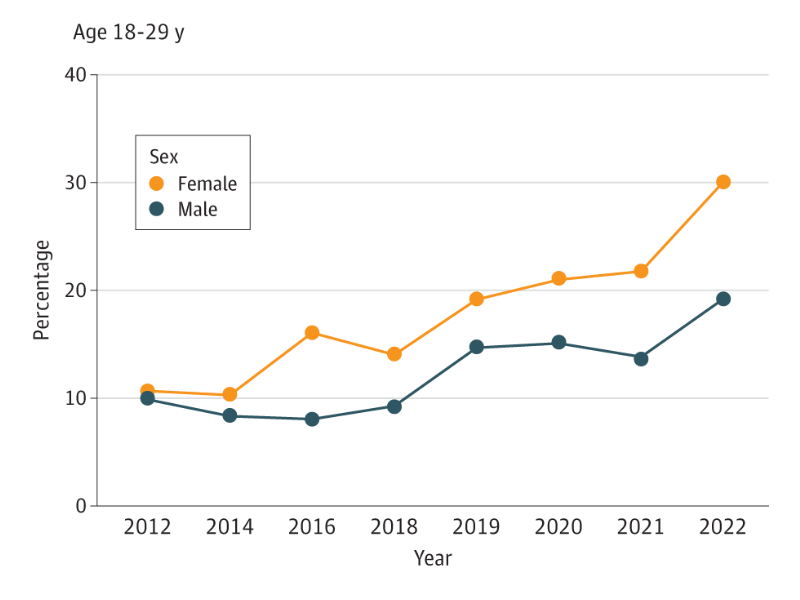The Mental Cost of Heartbeat Acts
Following the Texas Heartbeat Act, women across the state reported a 6.1% increase in mental distress, with young women most affected.

Read Time: 3 minutes
Published:
Since Roe v. Wade’s overturning, several states have enacted “heartbeat acts” that ban abortion after embryonic cardiac activity is detected, typically 5-6 weeks after conception. Because many do not yet realize they are pregnant at this stage, such laws can lead to more unwanted or unsafe pregnancies, raising both infant and maternal mortality.
Restricted abortion care also intensifies economic strain, social stigma, and shame—all of which can contribute to mental illness. People who are denied abortions often experience heightened anxiety, stress, and poorer maternal bonding.
The 2021 Texas Heartbeat Act (SB8) takes a distinctive approach: it does not directly ban abortions. Instead, it prompts citizens to sue providers who perform abortions after a fetal heartbeat is detected. It offers a cash reward for successful lawsuits and effectively incentivizes citizen surveillance. This structure instills fear and raises privacy concerns, heightening the law’s mental health ramifications.
To understand the impact of abortion laws on mental health, Jusung Lee and associates conducted a cross-sectional study following SB8. They analyzed 79,609 reproductive-age participants (18-44 years old) from Texas and other states using Behavioral Risk Factor Surveillance System data from 2012 to 2022.
The researchers examined changes in frequent mental distress, defined as 14 or more days of poor mental health (i.e., stress, depression, and emotional problems) in the past month. They compared Texas women to control groups, including Texas men and California women, before and after SB8 to isolate its effects.

Following SB8, women in Texas reported a 6.1% increase in frequent mental distress compared to peers in California, where abortion is protected. Younger women were most affected: distress rose nearly 10% among ages 18-29 and 7.4% among ages 30-39 compared to their male counterparts. Overall, distress among Texas women rose from 14.2% to 21.9% after the law took effect. Although mental distress also rose among men (from 11.0% to 15.0%), it was far less than among women, suggesting abortion restrictions may uniquely affect women’s mental health.
Younger people face additional barriers to care, like difficulty traveling and a lack of adult support. Restrictive policies magnify these obstacles, leaving them less equipped to navigate reproductive care than older adults. These findings foreshadow nationwide mental health decline as more states adopt heartbeat acts, most recently Iowa in 2023.
While the findings do not establish causation, the researchers stress that understanding this link is critical to inform policy, guide clinical care, and address the psychological fallout of abortion restrictions. Future studies in other states with restrictions can help strengthen evidence of a causal connection. Restrictive or punitive laws do not eliminate the need for abortion; they only heighten the fear, stigma, and harm for those already vulnerable.



